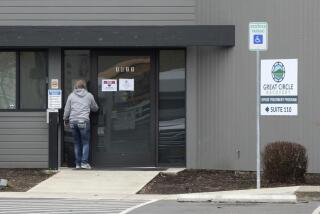Public Safety and Drug Testing
- Share via
It seems as though we could reasonably expect a fairly advanced level of reasoning from a Stanford University law professor, but after reading John Kaplan’s piece (“A Positive Check on Crime,” Op-Ed Page, March 16) advocating a solution to society’s drug problems founded on urinalysis of those arrested for any of the “typical crimes arising out of drug use,” I wonder if the legendary wisdom of academicians may be a myth after all.
Kaplan commits the elementary error of confusing problems which are inherent in drug use (primarily medical problems affecting only the user) with problems caused by the drugs’ illegal status (artificially high prices leading to organized crime and gang involvement; large numbers of deaths due to contaminated drugs and drugs of uncertain potency; criminal activity necessitated on the part of users, etc.)
This country had a graphic lesson on the pitfalls of outlawing a commonly used substance during the Prohibition years. What happened then? Gang warfare, a rise in the influence of organized crime, blindness and death from contaminated alcohol, prison overcrowding, and a vast increase in the amount of government resources devoted to law enforcement. The inevitable conclusion of the populace at that time was that the cure was worse than the disease, and alcohol was once again made legal.
We now have the Prohibition years all over again. Hopefully, society will again conclude that drug use is not a major component of the so-called drug problem; rather, the bulk of the ills result from the illegal status of a popular commodity. Indeed, anyone who feels that Prohibition was a mistake can hardly take the position that our present drug laws are somehow sensible.
We can only hope that the leading members of our society, from Stanford professors on down, will eventually admit that ever-more repressive measures by government are not the answer, and instead allow history to repeat itself.
RANDALL SMITH
La Jolla






